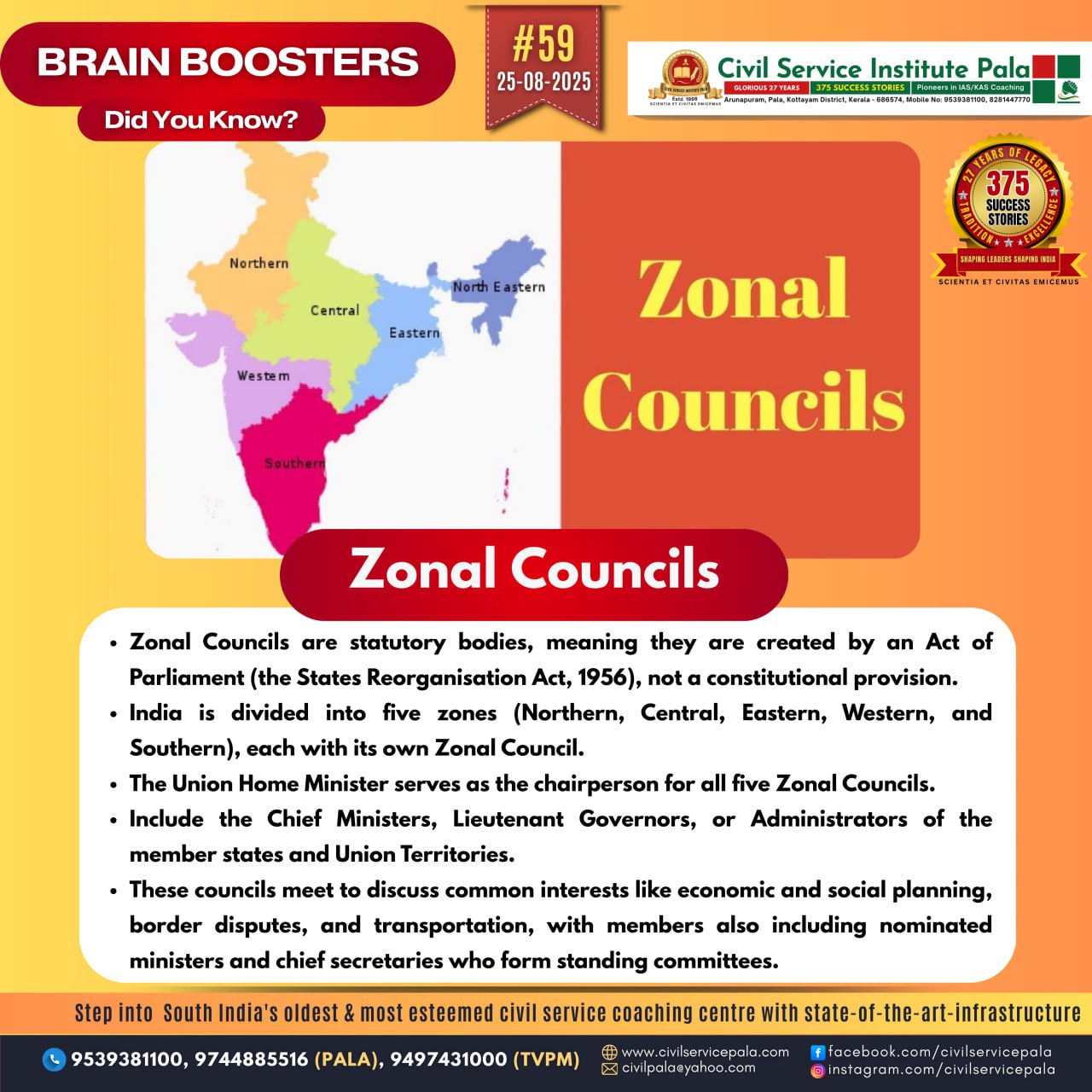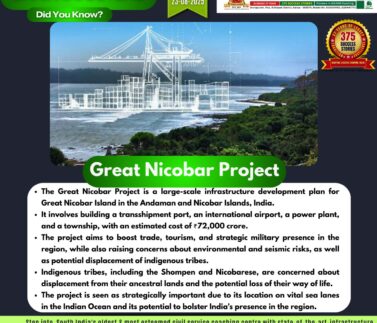
Zonal Councils
Zonal Councils are advisory bodies in India created to promote interstate cooperation and coordination. They were set up under the States Reorganisation Act, 1956 to strengthen the fabric of cooperative federalism.
🔹 Number & Composition
There are five Zonal Councils, each covering a group of states and Union Territories:
Northern Zonal Council – Haryana, Himachal Pradesh, Jammu & Kashmir, Punjab, Rajasthan, NCT of Delhi, Chandigarh, Ladakh
Central Zonal Council – Chhattisgarh, Madhya Pradesh, Uttar Pradesh, Uttarakhand
Eastern Zonal Council – Bihar, Jharkhand, Odisha, West Bengal
Western Zonal Council – Goa, Gujarat, Maharashtra, Dadra & Nagar Haveli and Daman & Diu
Southern Zonal Council – Andhra Pradesh, Karnataka, Kerala, Tamil Nadu, Telangana, Puducherry
👉 Apart from these, there is also a North-Eastern Council (NEC) created separately in 1971, which is not one of the original five but works in a similar way for the northeastern states.
🔹 Composition
Chairperson – Union Home Minister
Vice-Chairman – Chief Minister of the host state (rotational basis)
Members – Chief Ministers & Governors of states in the zone, and two Union Ministers nominated by the Centre
Advisory Members – Senior officers from the central and state governments
🔹 Functions of Zonal Councils
Promote economic and social planning between states.
Resolve inter-state disputes (like water sharing, transport, boundary issues).
Discuss matters of common interest:
Economic & social planning
Border disputes
Inter-state transport
Linguistic minorities
Security cooperation
Foster regional cooperation and reduce friction between Centre and States.
🔹 Significance
Strengthens Centre-State relations.
Encourages cooperative federalism.
Acts as a discussion platform for resolving contentious issues.
Helps in balanced regional development by sharing best practices.Source:https://www.pib.gov.in/PressReleasePage.aspx?PRID=2139316



